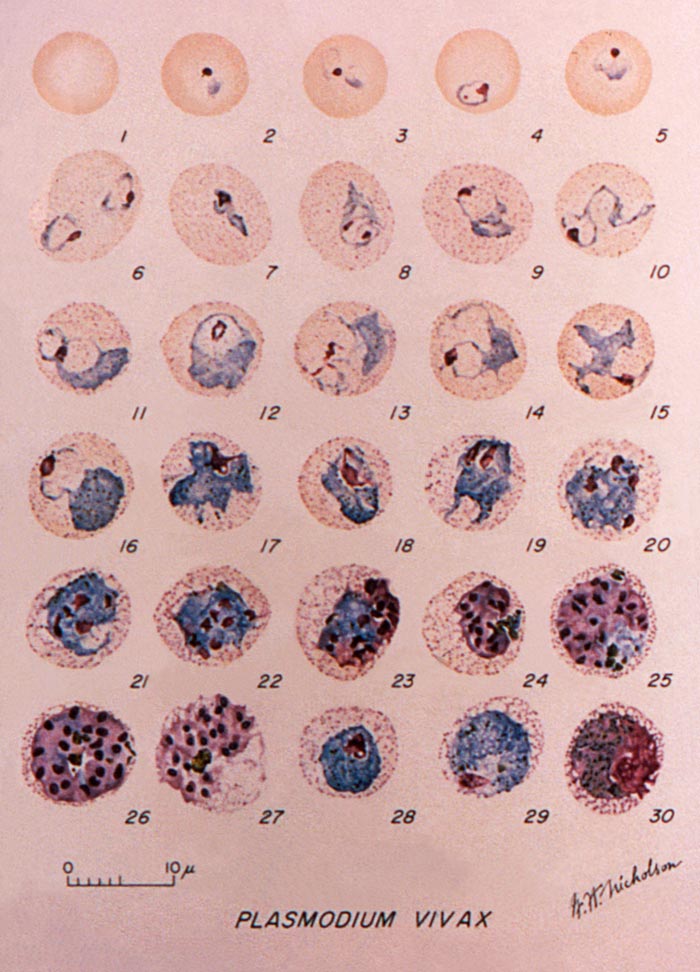
Gertrude H. Nicholson / CDCIllustrations showing the development stages of the protozoa Plasmodium vivaxGertrude H. Nicholson / CDC
The genetic varieties of Plasmodium vivax found in Brazil are distinct from each other and from those found in other countries. In Brazil, their ancestors are older than varieties from other parts of the world and they have undergone significant genetic alterations, including changes that increase resistance to antimalarial drugs. A group of researchers from the United Kingdom, Thailand, Colombia, and Brazil made the discovery after sequencing the complete genome of 123 samples of P. vivax from seven Brazilian states (Amazonas, Acre, Amapá, Rondônia, Pará, Mato Grosso, and São Paulo) home to this species of protozoa, the main cause of malaria in Brazil. The results of the Brazilian samples were then compared against another 192 from six countries in the Americas and 570 more from 20 countries in Africa and Asia (The Lancet Regional Health – Americas, February). The scientists stress that identifying genetic varieties can reveal important information about the mechanisms by which the parasite adapts to drugs, as well as indicating transmission patterns and helping to predict outbreaks. In 2021, Brazil’s Ministry of Health recorded 139,211 cases of malaria in the country (137,858 via autochthonous transmission). They were concentrated in the Amazon and caused by P. vivax (83% of the total) and P. falciparum (17%).
Republish